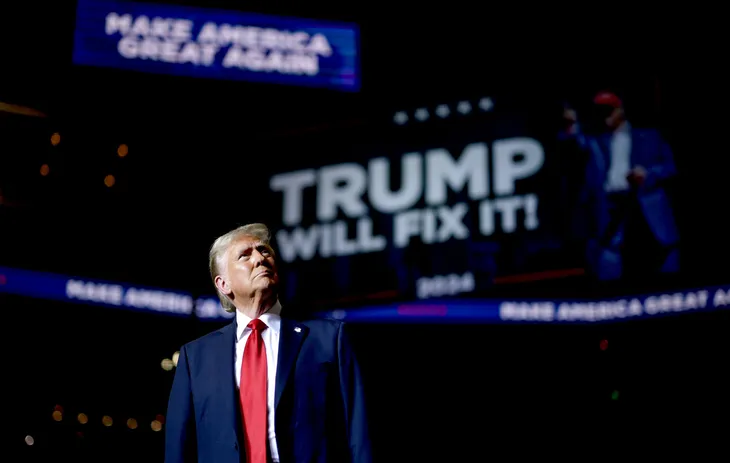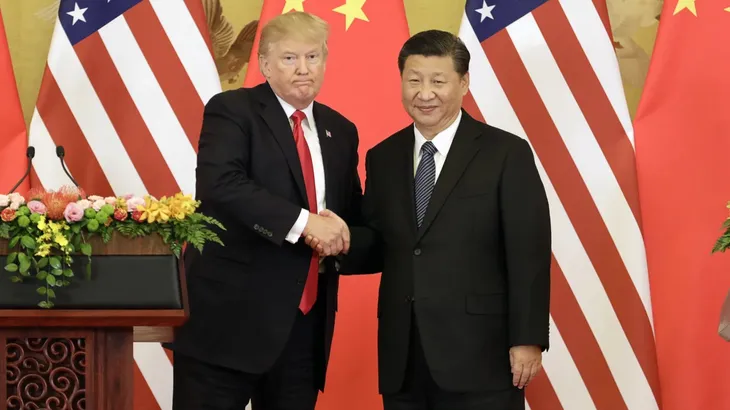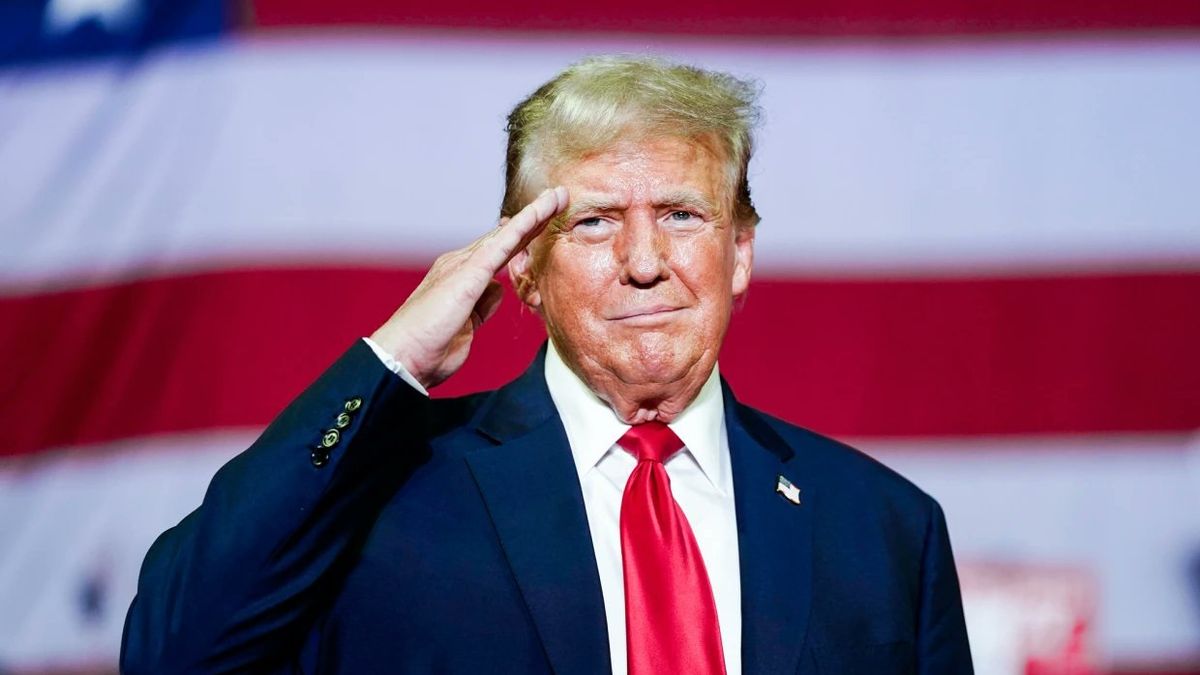A strong dollar is expected and there is reservation about Fed rates
One of the first effects after the Republican’s victory was the rise of the dollar, which occurred globally and also locally, something that could continue. “In the very short term we are already seeing effects on the exchange rate in Uruguay and throughout the region,” he expressed Deborah Eilender, economist Development Studies Center (CED)in dialogue with Scope. He exchange rate “It has been rising and it is what we could expect and what happened in Trump’s previous term,” he confided.
On this point, the economist CPA Ferrere, Nazareno Sánchez, He told this medium that the Republican’s policies could lead to “inflationary pressures”, which would lead to the Federal Reserve “may be forced to slow down the cycle of interest rate cuts that has already begun.”
“This would cause a strengthening of the dollar and would tighten financial conditions globally,” Sánchez interpreted and added: “For emerging economies, including Uruguay, This scenario would be unfavorable, since the appreciation of the dollar could weaken its currencies and increase external financing costs.”
Dollar market United States.jpg
Photo: Freepik
In turn, the managing economist at Exante, Mathias Consolandich, agreed when speaking with Ámbito that “the monetary policy What the Fed carries out in 2025 will be conditional” on Trump’s measures, although “it will want to preserve its objective of inflation”.
“Scenarios of rates in dollars falling little in the framework of an expansive fiscal policy and/or protectionist initiatives in USA “They would be consistent with a dollar that remains strong in the world,” he analyzed and considered that “it is also consistent with raw material prices that remain at low levels for the values of recent years.”
“If fiscal policy were to maintain the current expansionary trend, we expect interest rates in dollars to remain high compared to the average of previous decades. This means ‘expensive’ financing for the rest of the world and is a negative element for credit-taking countries such as Uruguay”, Consolandich stated and recalled that “it would also mean lower capital flows towards Latin America”.
The impact of Trump’s policies on the world
By focusing on the direction that Trump will give to his administration, Eilender referred to the “America First”, one of the axes of the republican: “The idea of prioritizing USA is translated into an increase in external tariffs, prioritizing products produced there.” “This implies obstacles in the international trade, lower commodity prices and lower demand. This undoubtedly affects us directly as an agro-exporting country,” he stated about the consequences in Uruguay.
In turn, Consolandich highlighted the magnitude of “a resounding victory for having won the popular vote, the pendulum states and control of both chambers in the Congress” and maintained that this “will allow him to advance with the agenda of the Republican Party, which includes extending the reductions of corporate taxes, a trade policy approach aimed at increasing tariffs, a tougher stance on immigration and a potentially more unilateral stance on foreign policy.”
Donald Trump.jfif

“Moving ahead with tax cuts without credible mitigation from the government side spent It will put greater pressure on the public accounts of the United States, which already show a very significant deterioration. The lack of visibility about how the political system will carry out an adjustment generates uncertainty about the sustainability of the debt and is putting pressure on interest rates,” he warned and maintained that it generates “a threat to this very successful process of disinflation which has been going on for a year and a half.”
Sánchez, meanwhile, also referred to the “wide margin” of advantage over Kamala Harris and considered that this “will facilitate the implementation of his government program.”
On this point, he considered that “it proposes policies that increase the inflationary pressures, mainly due to its protectionist approach, the promotion of expansive measures in the exploitation of natural resources, the promotion of the production of oil and incentives aimed at strengthening the national industry.”
The return of the trade war with China and its risks
Regarding the global panorama, Sánchez anticipated that “the possible reactivation of the trade war between the United States and China “It could have mixed effects for emerging economies.”
“On the one hand, as part of the retaliation to the tariff measures, China could reduce its imports coming from the United States and redirecting their demand towards other countries that produce raw materials, such as those of the Mercosur. However, protectionist measures would also affect the dynamism of Chinese economic activity, translating into lower demand and therefore lower prices,” warned the CPA Ferrere representative and recalled that although the Asian giant reduced its exposure to American products, “These continue to play an important role in their total imports.”
Donald Trump, Xi Jinping.jfif

In turn, Eilender indicated that the difference with the previous Trump cycle “is that we have a China that grows even less than before, so we not only expect a United States that becomes quite protectionist, But we have a China that is not going to be bidding as hard and it affects us directly.”
In the same direction, Consolandich maintained that “a new protectionist push by the United States represents a significant risk for China’s economy, which has greater economic difficulties than those observed at the beginning of the trade war between the two countries in 2018 and therefore also less margin to mitigate the adverse effects that come with the escalation of that conflict.”
“It would also negatively affect the rest of the emerging countries. From the perspective of Uruguay, All of this represents a downward risk on global growth, which in itself is already moderate,” he said.
The expectation of more moderate growth
Precisely, the Exante economist defined that with this analysis “the global scenario for the coming years appears challenging for Uruguay” and graphed: “This represents a negative shock: growth moderate global situation, strong dollar, relatively high interest rates compared to the average of the last decade and commodity prices at reduced levels in real terms.”
At the same time, Eilender countered that “there will probably be good growth in the United States, that is what the market anticipates,” but warned: “It could lead to certain restrictions on growth in other countries such as China and a Europe which is already growing very little. These obstacles to trade could have implications for trade not only in emerging countries.”
Finally, the CED representative added about the local section that “this external scenario is indifferent to who wins the elections” in the runoff that will be held on Sunday the 24th. Yamandú Orsi and Álvaro Delgado, although he admitted that “each candidate has different visions and could make decisions or face each other in different ways.”
Source: Ambito
I am a 24-year-old writer and journalist who has been working in the news industry for the past two years. I write primarily about market news, so if you’re looking for insights into what’s going on in the stock market or economic indicators, you’ve come to the right place. I also dabble in writing articles on lifestyle trends and pop culture news.




